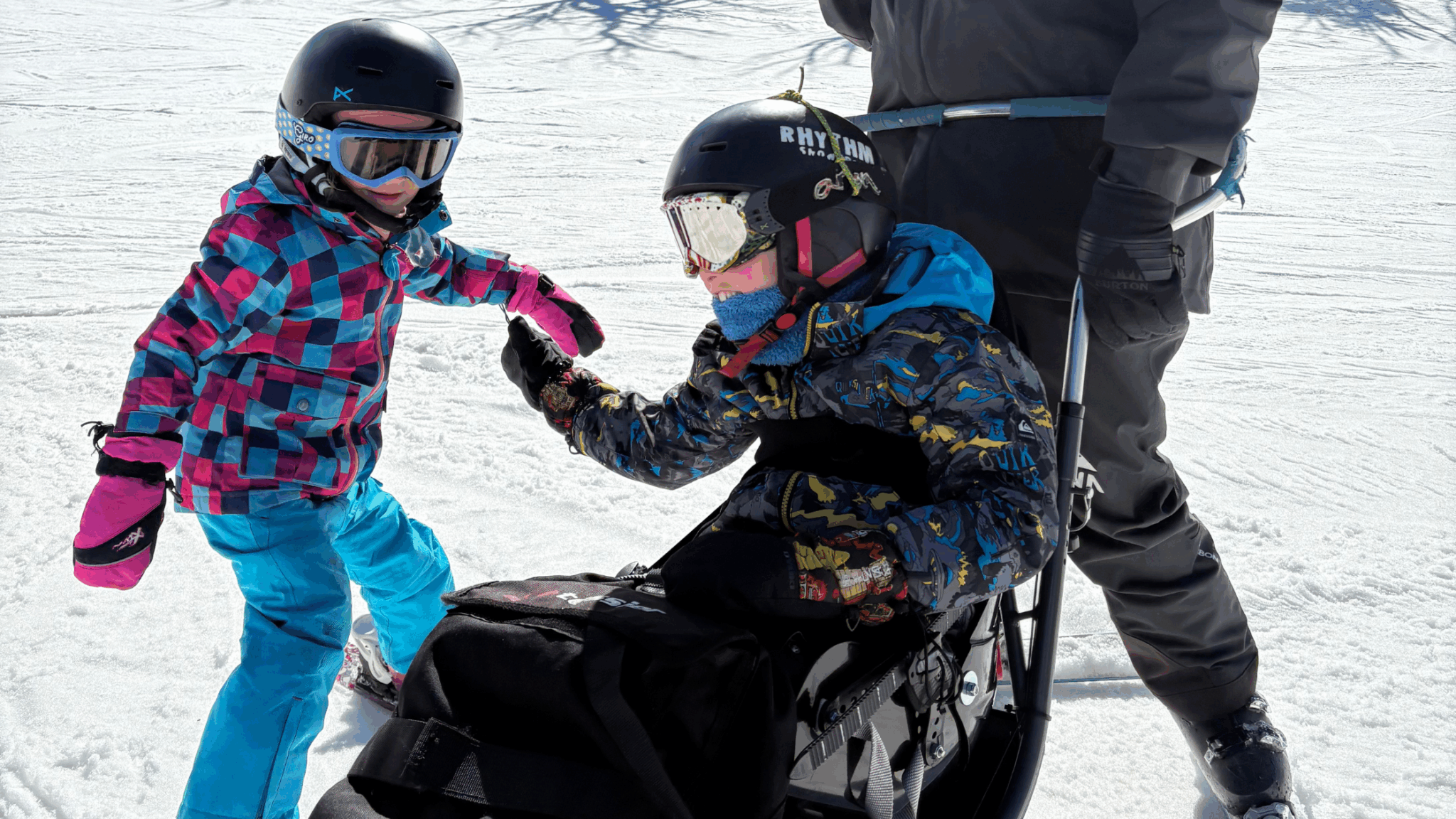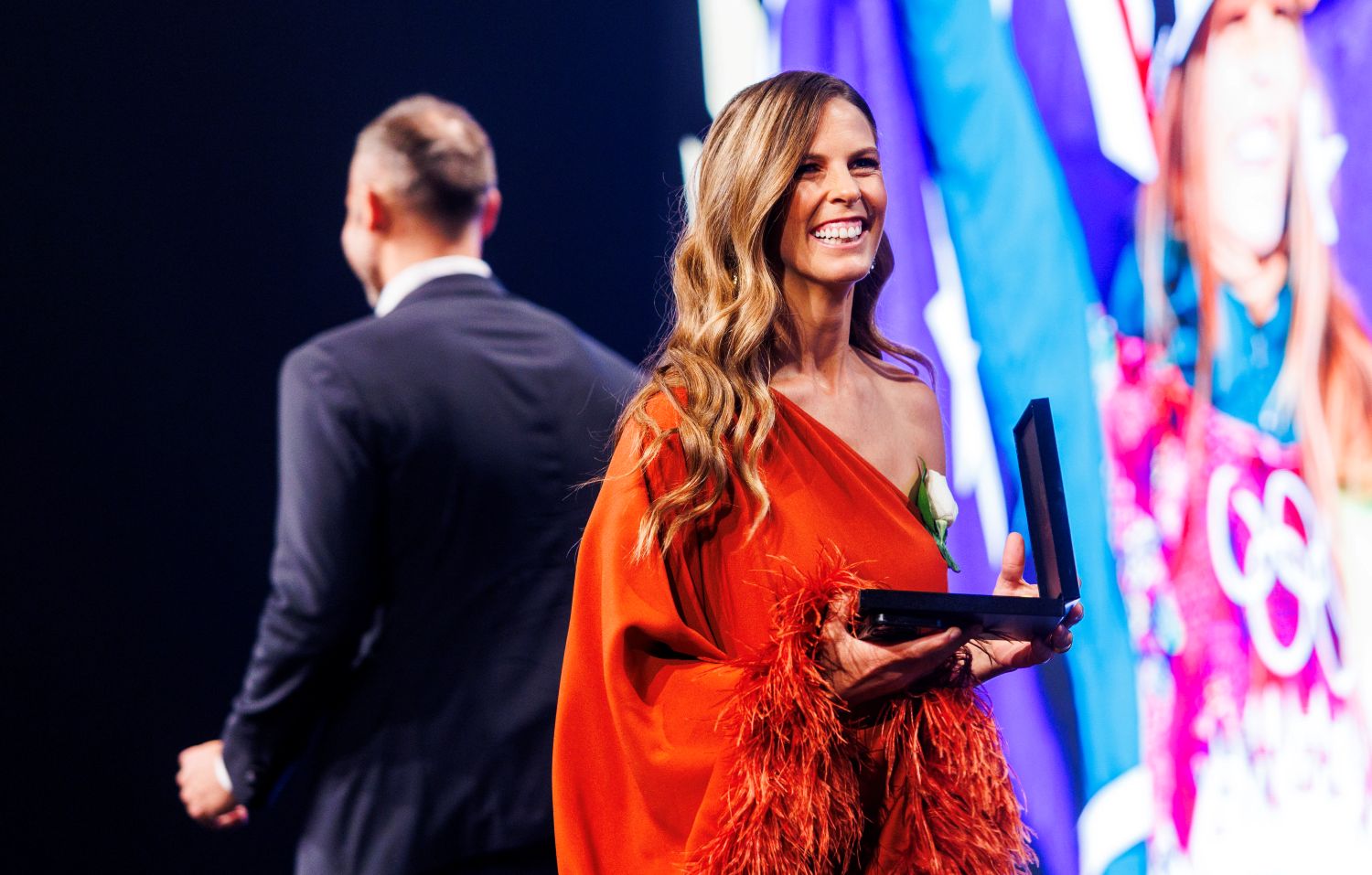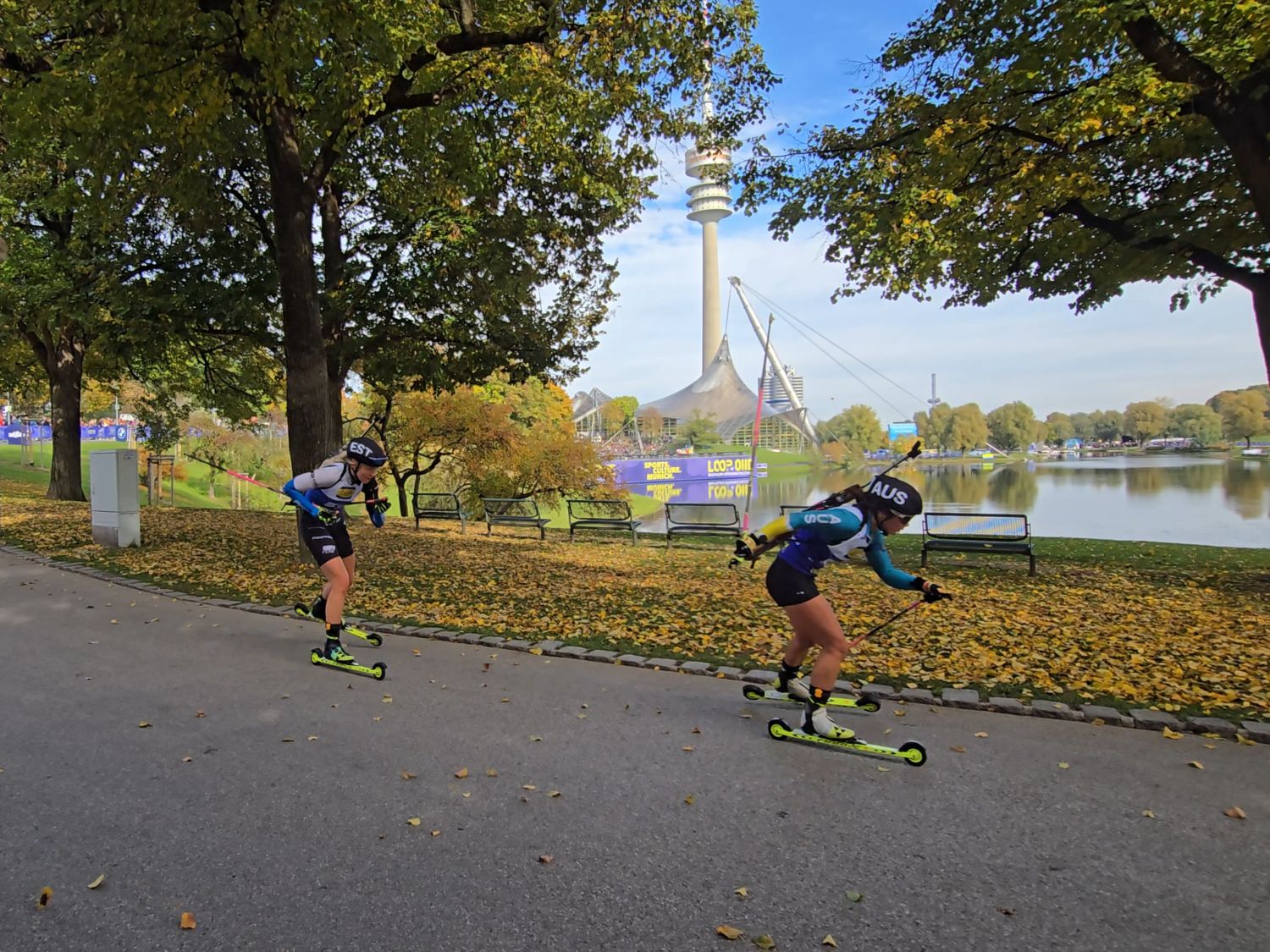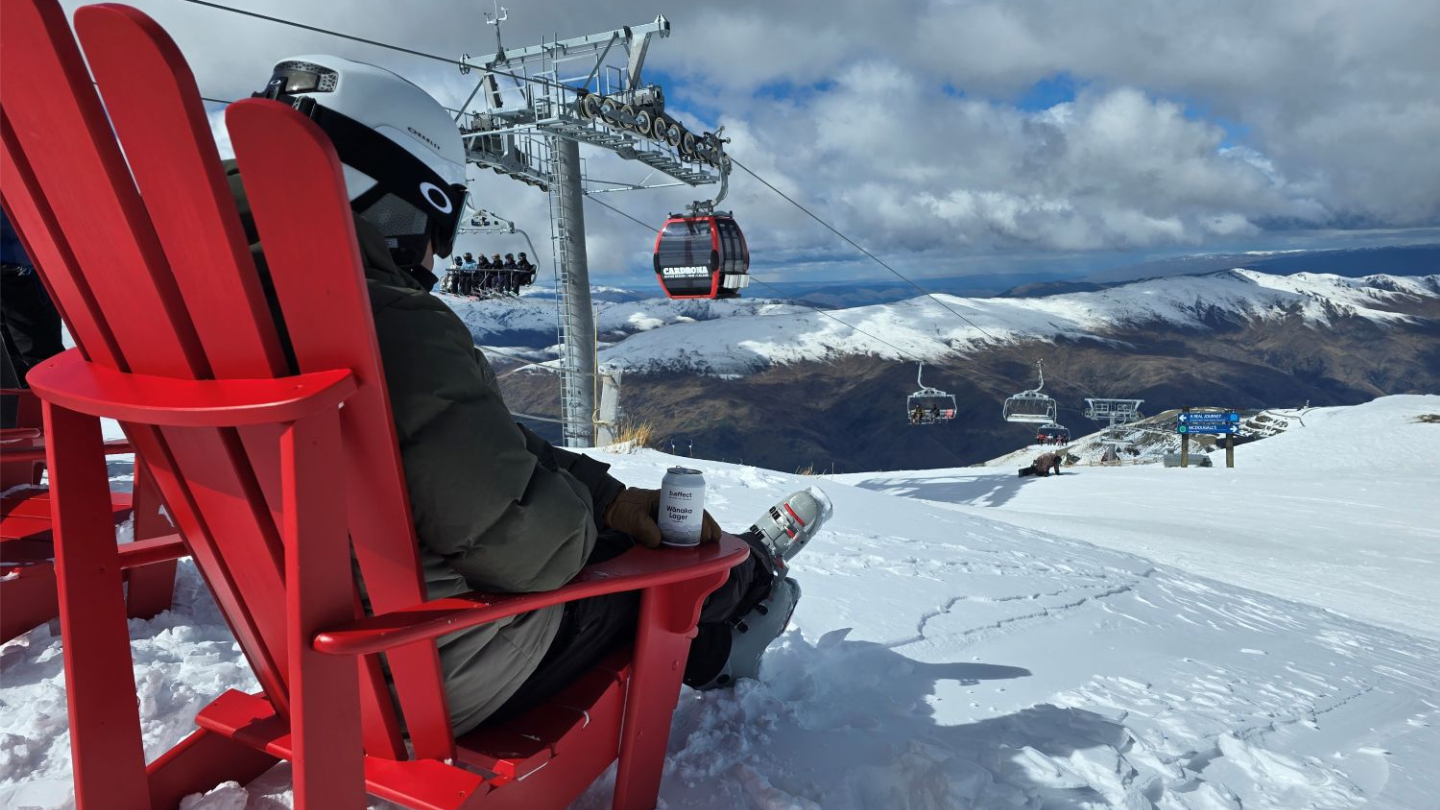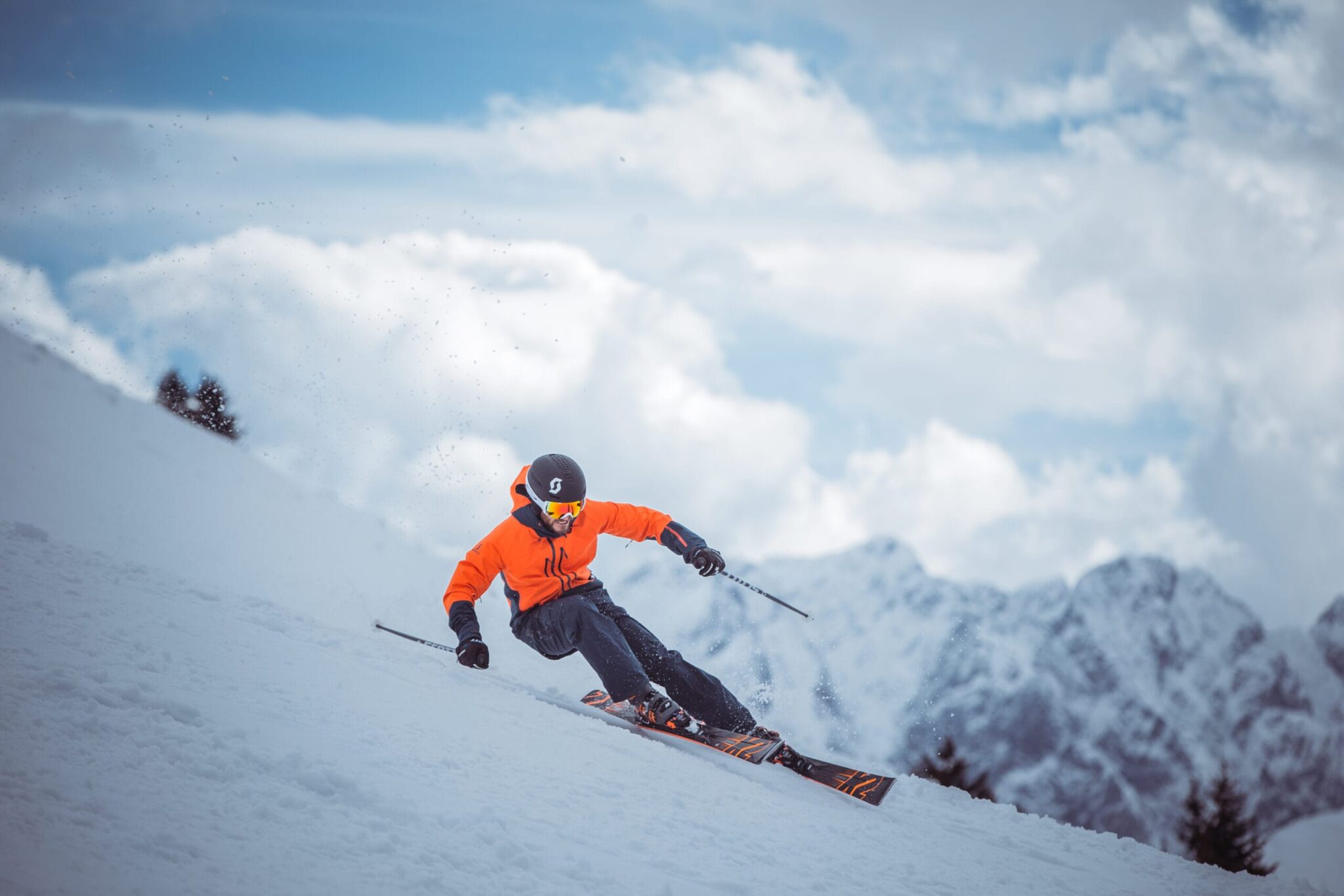The world of travel is improving for travellers with disabilities of all kinds, but there’s more work to do and some of that’s on you, dear travellers. I sat down with Lauren, a mum-of-three (including a 9-year-old son with physical and cognitive impairment), to chat about the improvements and cultural shifts that need to happen to help travel experiences become more inclusive.
Lauren’s family-of-five love an outdoor adventure. They’ve all grown up skiing and snowboarding, and get to the NSW ski resorts as much as possible during the Aussie winter. Lauren sings the praises of Disabled Wintersport Australia (DWA) for getting their son, Blake, into a sit-ski to enjoy the mountains alongside his family. At age 9, Blake has several brain differences due to a rare syndrome, and while Lauren and her husband would love to take Blake and his sisters (age 11 and 4) for an all-in family overseas ski trip, she explains that it’s just something that feels beyond their reach.
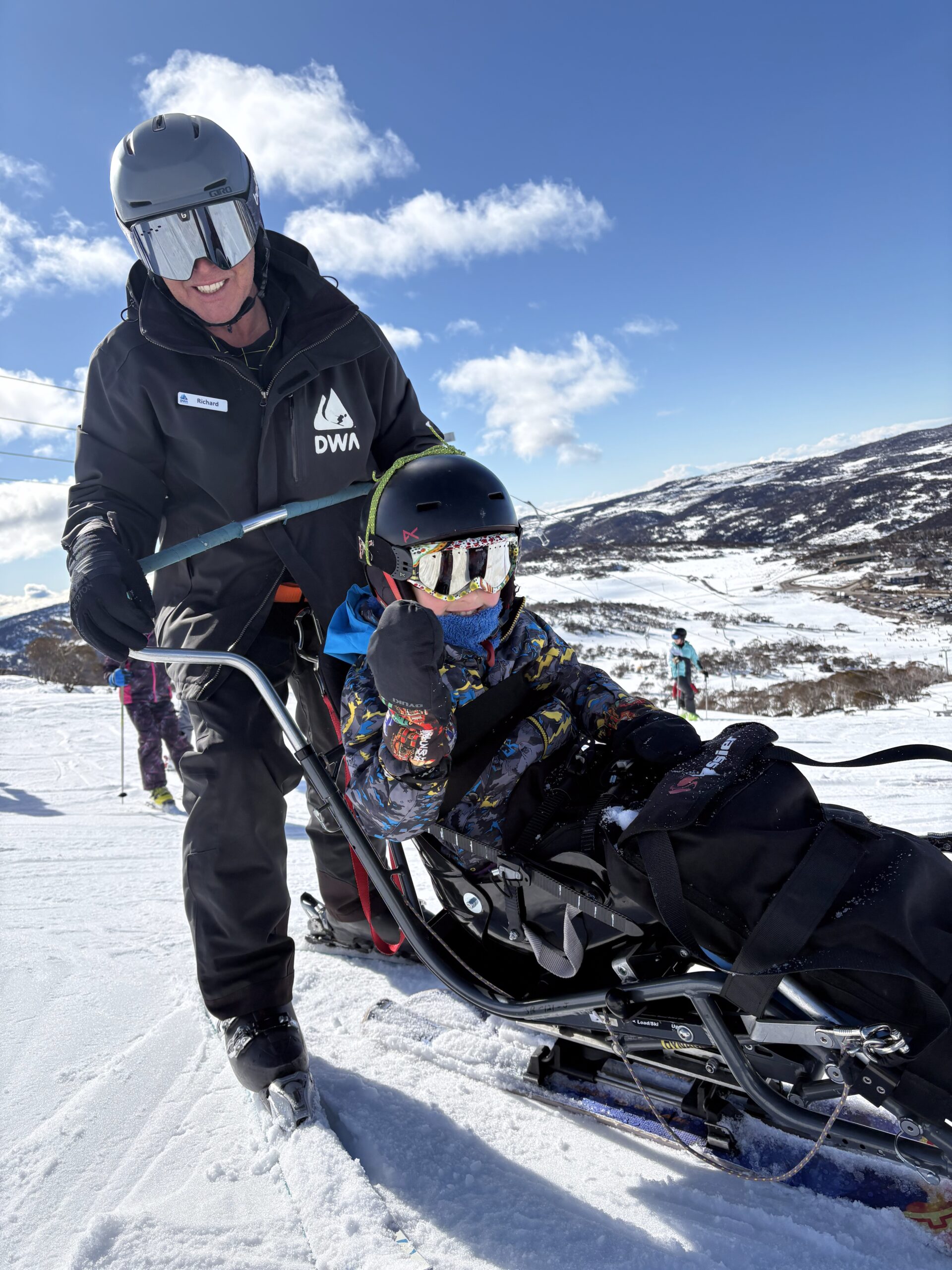
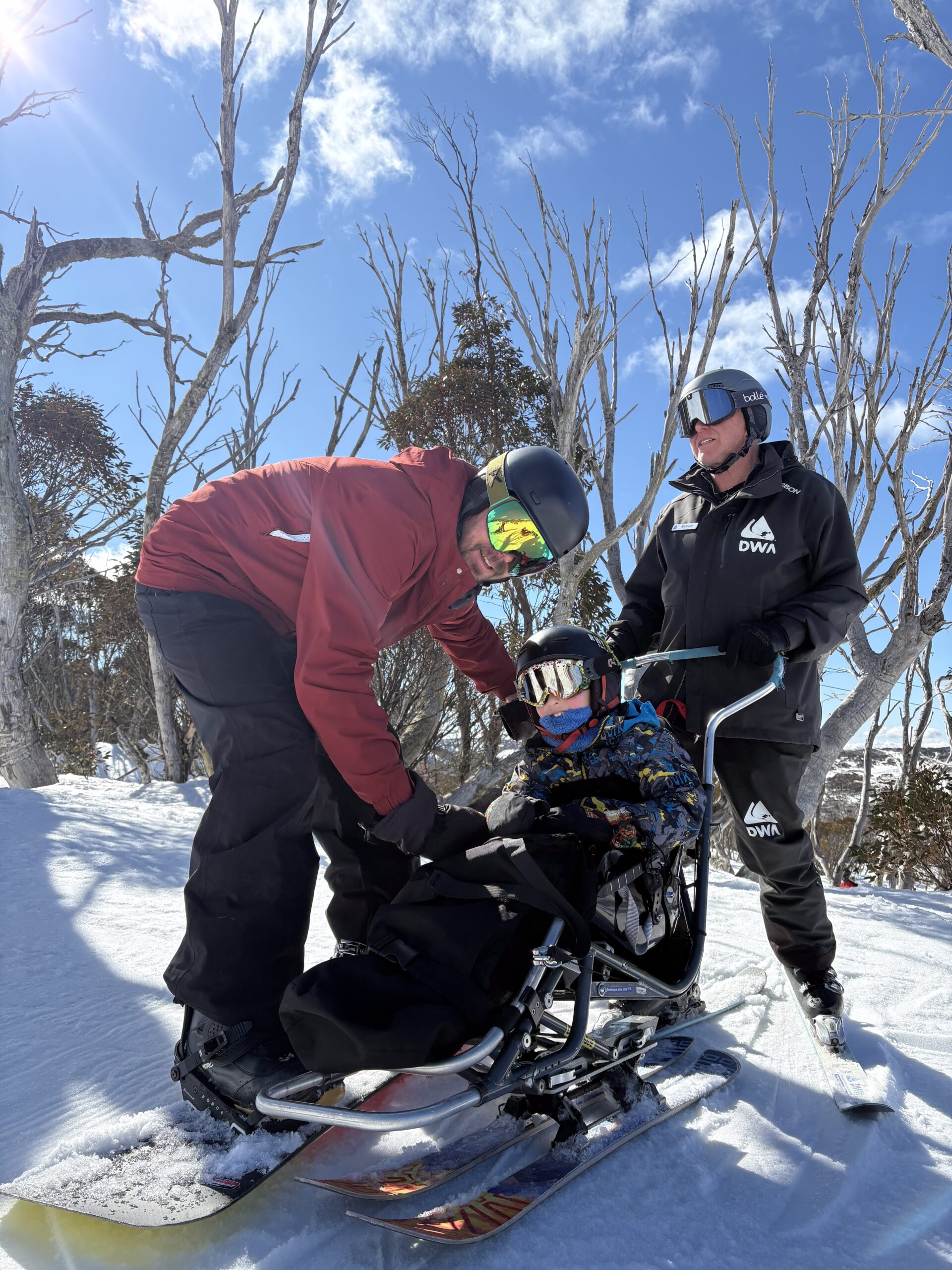
Lauren relays how, in recent years, they’ve used a ‘divide and conquer’ approach for overseas ski travel, with their eldest daughter joining either Mum or Dad for a Japanese powder chase, while the rest of the family stay home. But with incredible and well-established disability programs like Achieve Tahoe or the NAC in Park City Utah that are available for kids just like Blake, I ask Lauren why that elusive overseas family snow adventure still seems so out of reach. “Oh gosh, where do I start?”, she laughs. “First of all, we need backup. Blake needs an adult within arms reach of him at all times for his safety. So we need another responsible adult with us from the time we leave home, until the time we arrive home. Blake has a few great support workers who assist him in our home and local community, and taking one of them with us would definitely be a good solution, but that would present us with a lot of extra expenses.” She goes on to explain that while the support worker’s work hours would be paid by NDIS, the support worker’s flights, accommodation, food, etc. would be a significant out of pocket expense for their family… an expense a typical family would never incur. That’s not fair!
Expenses aside, all the money in the world is not going to help them navigate that dang plane! The sensory overload of planes and airports is a challenge that often in itself prevents neurologically diverse people and their families from travelling. “Airports are just overwhelming. There are people everywhere. It’s noisy. There’s lots of queues you have to wait in. Check-in. Security. Boarding. Lot’s of social etiquette that is second-nature for neurotypical people. It’s all just a lot.” And for many neurodivergent people or people with intellectual disabilities, it’s simply too much. “We definitely have a fear that Blake will go into a meltdown before we even get on the plane. Then imagine a 14 hour flight after that traumatic experience!”
Lauren goes on to explain that while she is wary of making comparisons that may be seen as “infantilising” or being “ableist” by some within the disabled community, she thinks that many parents who have travelled long haul with neurotypical toddlers could relate to the experience of them screaming blue murder in the airport security line, throwing themself on the floor in a tantrum or running up and down the plane aisles, tipping up tray tables. “The thing is, people are far more accepting of a 2 or 3-year-old behaving in this way than a 9 year old. We have definitely been on the receiving end of dirty looks and judgy comments. I’m sure there is far more understanding from the general public than there was, like twenty or thirty years ago, but the cultural shift of accepting neurological diversity hasn’t fully happened yet.”
“You have to have a thick skin ALL the time, just to deflect the way that people respond to your child”. Lauren
So travelling with a family member who has complex disabilities presents a lot to deal with before you even reach your destination… but surely you can all relax once you arrive? Well that depends on whether your destination is actually accessible or just the PR version of accessible. “People with intellectual disabilities or other ‘hidden disabilities’ such as Autism, often get forgotten in infrastructure, services and programs that are marketed as accessible. Physical impairments are usually the most well accommodated. But separate to physical disability, a person might also have sensory-processing issues or may not function well in over-stimulating places or they might have a speech and language disorder where they use alternative communication methods. Programs and spaces that meet all of those needs are really difficult to come by, and you just never know what you’re gonna get until you get there.”
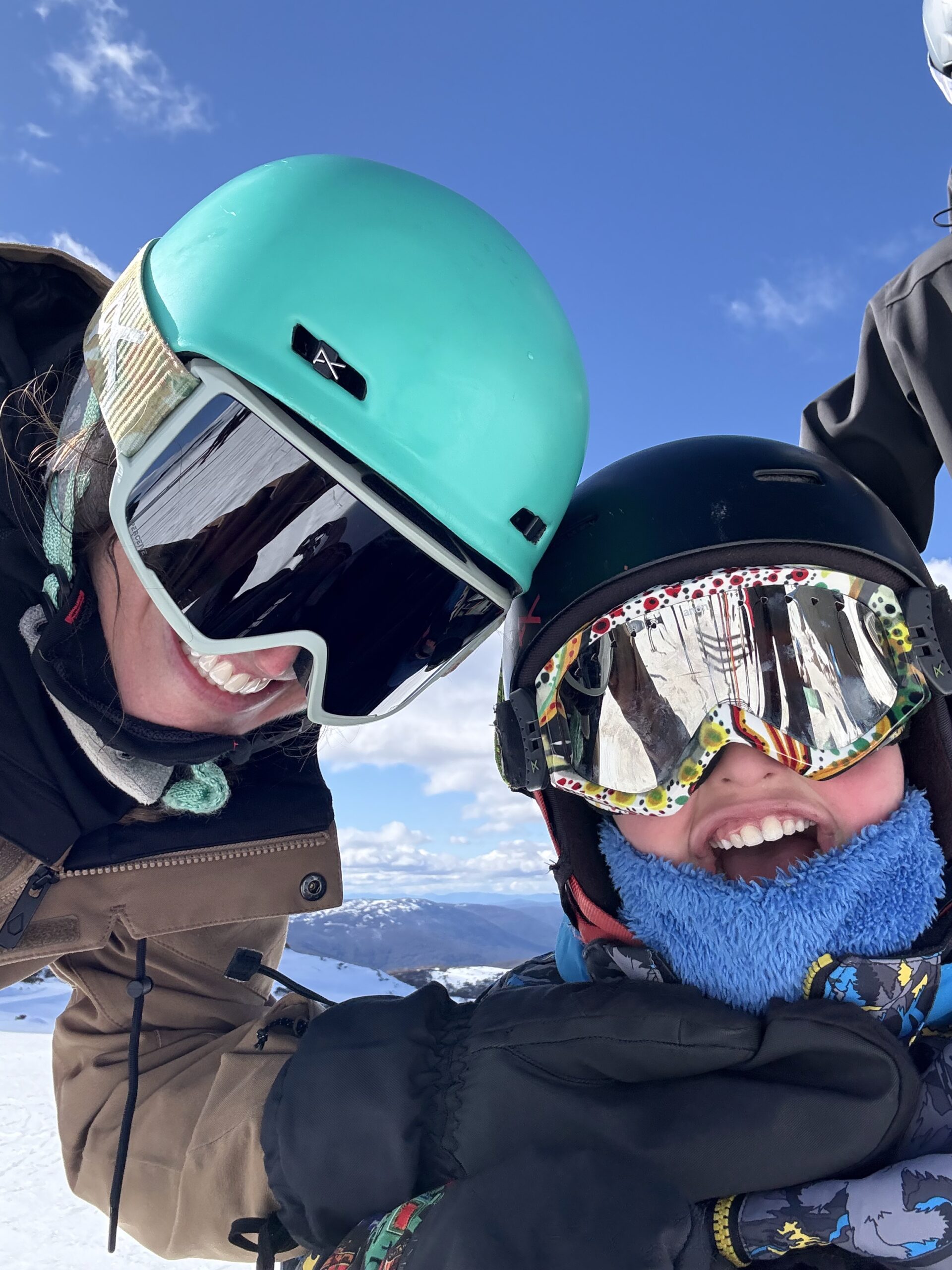
So, fellow travellers, it’s beyond clear that Aussies with disabilities and their families want to travel just as much as the rest of us. But the question needs to be asked – Are we all doing enough to make travel truly accessible and inclusive for everyone? Are we ensuring people with disabilities do not incur additional expenses, just because they are a disabled traveller? Are you parking your judgement at the door when you encounter neurodivergent people? Are airlines and airports really addressing the needs of people with all kinds of disabilities? Do we need priority care sections in planes? Door-to-door transfers? Expedited customs services? More public awareness of services like Hidden Sunflowers. More travel companies specialising in disabled or supported travel?
We have work to do, Australia. Let’s go!

